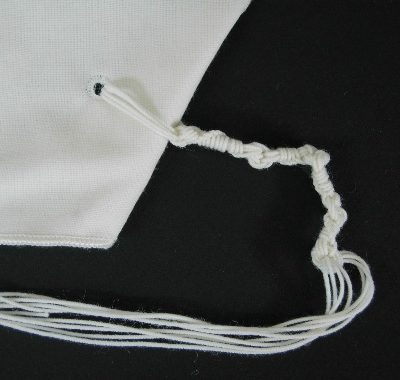Adapted from the writings of Dayan Yitzhak Grossman April 18, 2024 AP News reports: A…

Bais HaVaad on the Parsha, Parshas Bereishis
Plastic Wrap
Excerpted and adapted from a shiur by Rav Moshe Zev Granek
October 20, 2022
And Hashem created the great sea monsters, and every living creature that crawls with which the waters swarmed, according to their kind, and every winged fowl according to its kind, and Hashem saw that it was good.
Bereishis 1:21
Contemporary poskim debate whether synthetic garments require tzitzis. According to many, including R’ Tzvi Pesach Frank and R’ Moshe Sternbuch, they do. But Rav Elyashiv (Kovetz Teshuvos 1:1) cites the Ritva (Shabbos 27b) that in order to be obligated in tzitzis, a garment must be mekabel tumah (susceptible to impurity). Because synthetic garments are made from plastic, which comes from petroleum drawn from deep in the earth, and the Mishnah (Keilim 17:13) says that any utensil made from material from the sea is not mekabel tumah, oil[1] is not mekabel tumah—so synthetic garments are not chayav in tzitzis.[2]
Rav Elyashiv’s argument appears to be subject to a machlokes Acharonim. According to the Yeshuos Malko, the rule that something from the sea is not mekabel tumah applies only to animals, not plants and other items, so oil would be mekabel tumah. But the Kli Chemdah (Parshas Bereishis) argues that even plants and other materials from the sea are not mekabel tumah, because these were created on the fifth day with the sea creatures, and the Mishnah (Keilim 17:14) says that anything created on the fifth day is not mekabel tumah.
[1] Rav Elyashiv assumes that oil that is drawn from the ground is comparable to something from the sea, as both are found beneath the surface of the earth.
[2] R’ Moshe Feinstein argues at length that synthetic materials are exempt from tzitzis for a different reason, because they are more similar to leather, which is not chayav in tzitzis.





